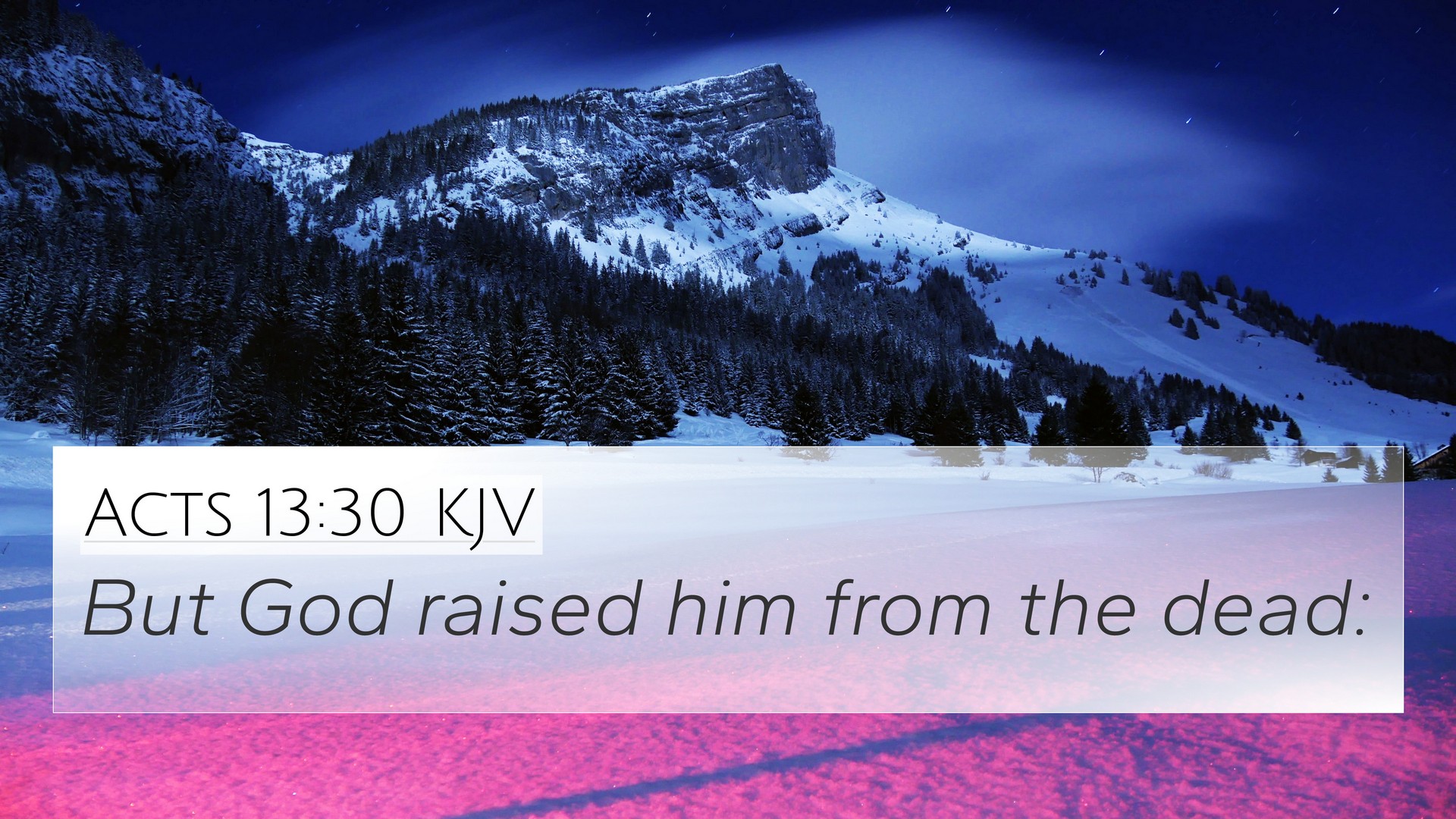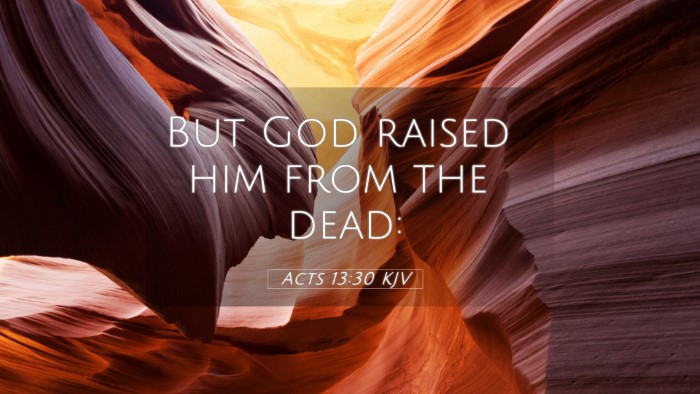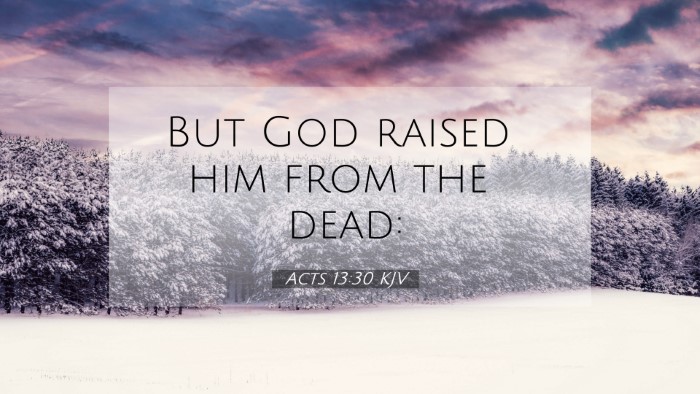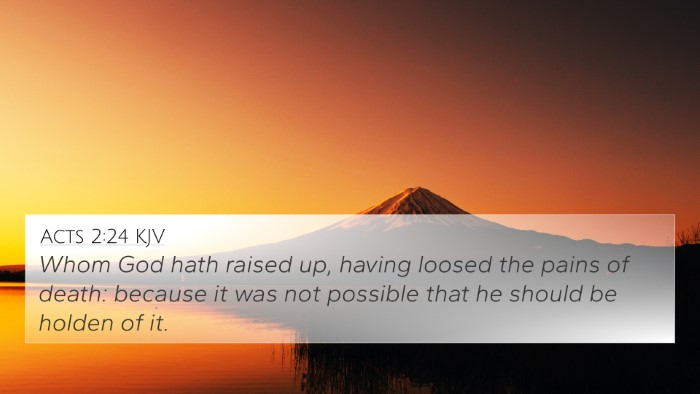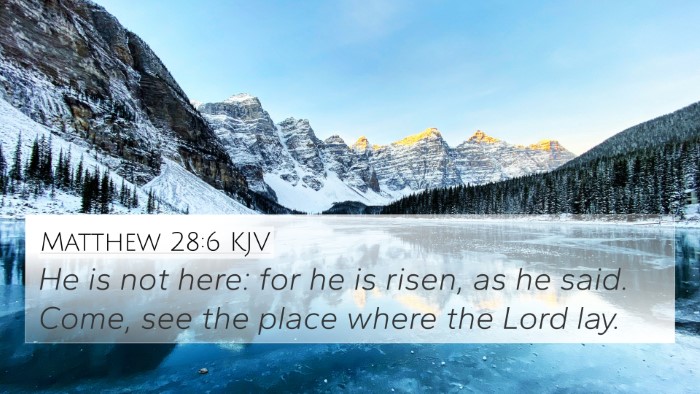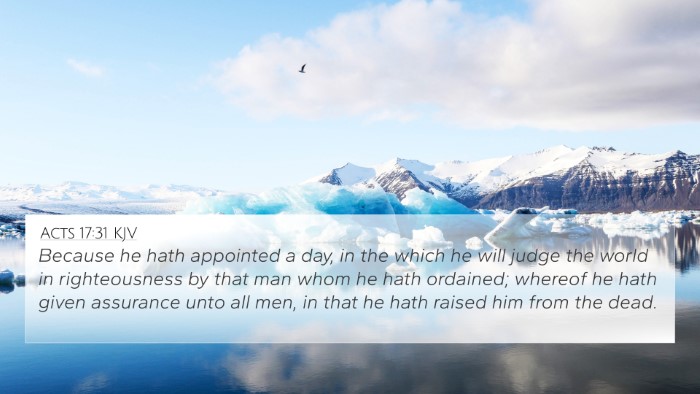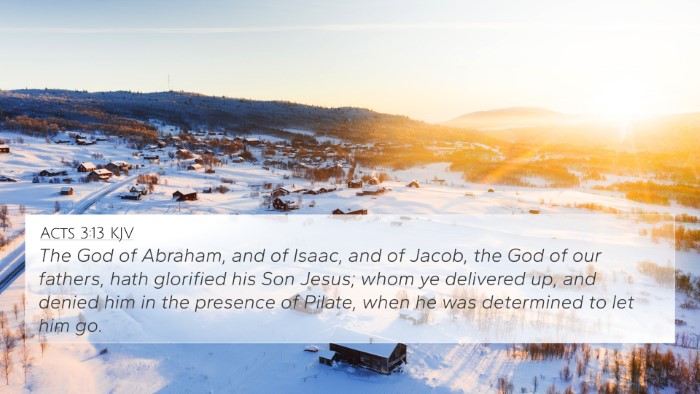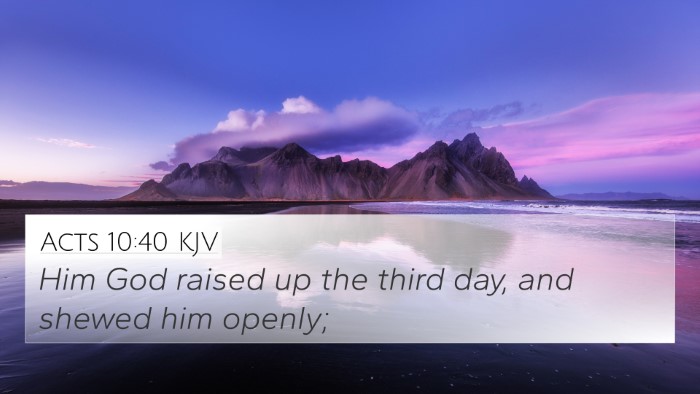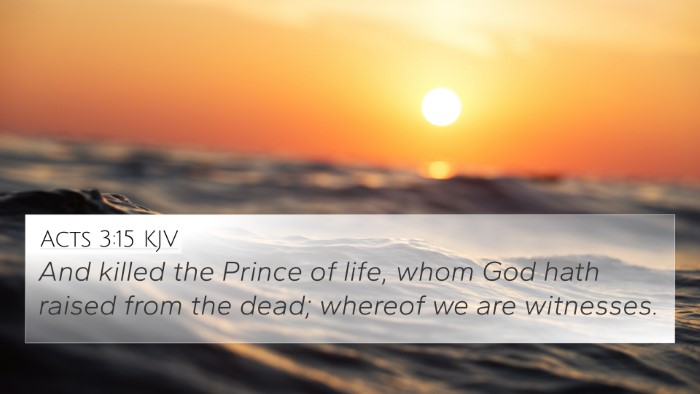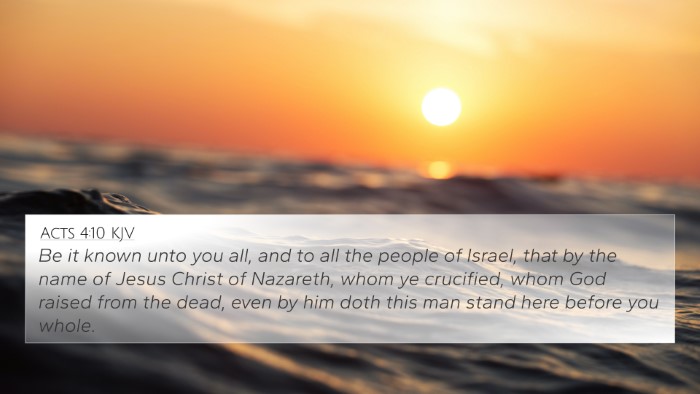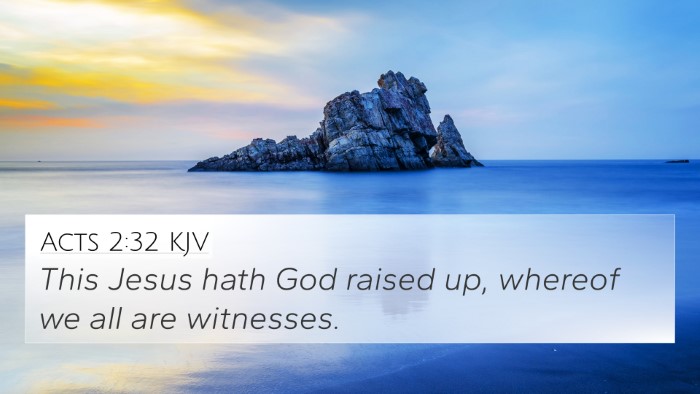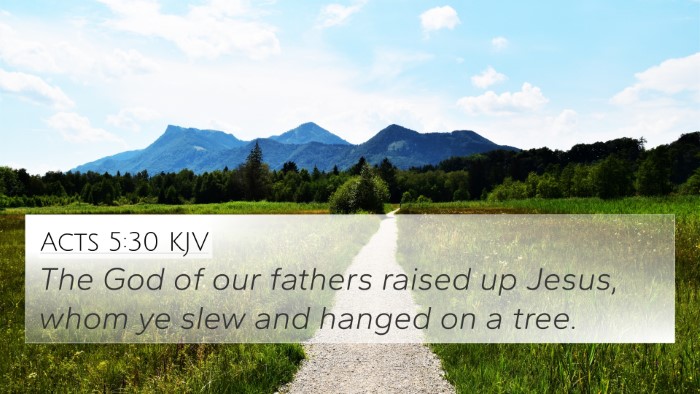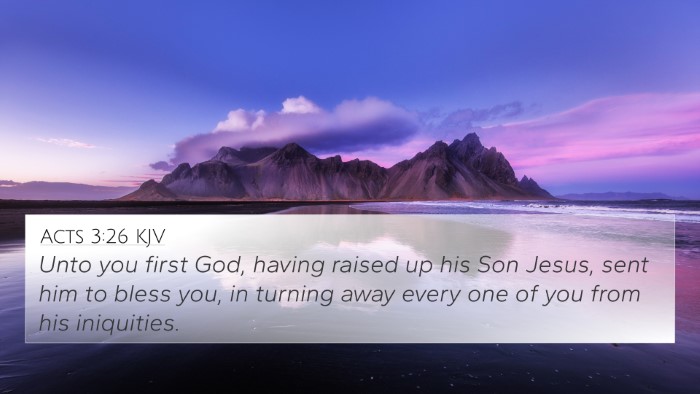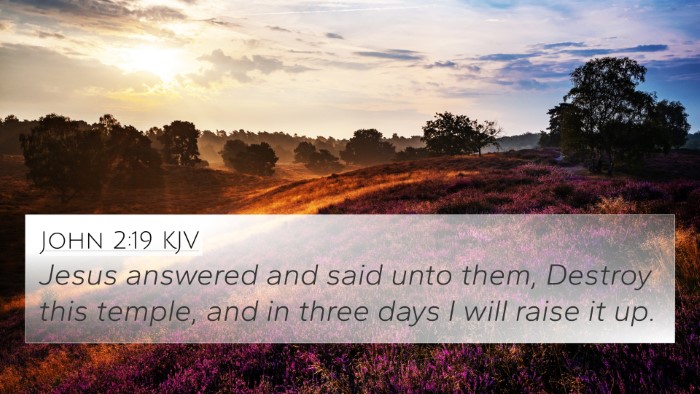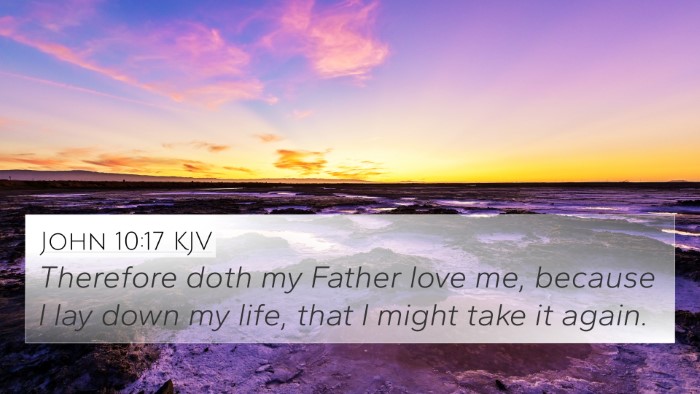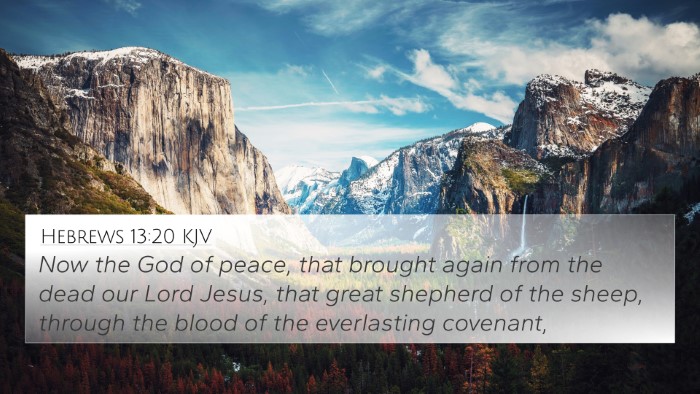Understanding Acts 13:30
Acts 13:30 is a pivotal verse in the New Testament, illustrating the resurrection of Jesus Christ. The verse reads: "But God raised him from the dead." This short yet profound statement encapsulates the core of Christian belief regarding the resurrection and its significance. The resurrection serves as the foundation for the Christian faith, signifying not only the power of God but also His plan for salvation for humanity.
Commentary Insights
Drawing insights from noted Biblical commentators such as Matthew Henry, Albert Barnes, and Adam Clarke, we can delve deeper into the meaning of this verse and its theological implications:
-
Matthew Henry:
Matthew Henry emphasizes the divine aspect of the resurrection. He points out that it was God's decisive action "to raise him," signifying that Jesus' resurrection was a fulfillment of prophecy and God's plan for redemption. Henry notes that this event is central in proclaiming the Gospel, as it confirms Jesus' identity as the Son of God and verifies the truth of His teachings.
-
Albert Barnes:
Albert Barnes expands on the implications of the resurrection, underscoring its importance in establishing Jesus’ authority. He highlights that the resurrection demonstrates Christ's victory over death, offering hope and assurance to believers regarding their own resurrection. Barnes also connects Acts 13:30 with Psalm 16:10, showing a fulfillment of David's prophecy about the Messiah not being abandoned to the grave.
-
Adam Clarke:
Adam Clarke focuses on the historical and social context of the resurrection. Clarke explains that at the time of its proclamation, the resurrection was a declaration of faith that would resonate within both Jewish and Gentile audiences. He stresses that the early apostles used the resurrection to bridge cultural divides and encourage conversion among diverse groups.
Related Bible Cross-References
In exploring Acts 13:30, we can identify several related Bible passages that further enrich our understanding:
- Psalm 16:10 - David's prophecy about not being abandoned to the grave relates directly to the resurrection of Christ.
- Matthew 28:6 - The angel's announcement of Jesus’ resurrection is a significant parallel, confirming His victory over death.
- Romans 1:4 - This verse describes Jesus being declared the Son of God with power by the resurrection.
- 1 Corinthians 15:20 - Here, Paul affirms that Christ is the firstfruits of those who have fallen asleep, establishing the hope of resurrection for believers.
- John 11:25-26 - Jesus’ declaration that He is the resurrection and the life underscores the importance of belief in Him for eternal life.
- Hebrews 13:20 - It speaks of God raising Jesus from the dead, further tying into the theme of God's power in the resurrection.
- Revelation 1:18 - Jesus proclaims that He holds the keys of death and Hades, affirming His authority over life and death.
- Acts 2:32 - Peter's declaration that God raised Jesus, reflecting the early church’s emphasis on the resurrection.
- John 20:9 - References to the disciples struggling to understand the resurrection until witnessing it firsthand.
- Philippians 3:10-11 - Paul expresses a desire to know the power of the resurrection, linking intimately to the theme of Acts 13:30.
Connections Between Bible Verses
The verse Acts 13:30 opens various avenues for connecting Scripture and deepening our understanding through cross-referencing. Here are some tools and methods you can use for biblical cross-referencing:
- Bible Concordance: A comprehensive tool that lists words or topics along with their occurrences throughout Scripture.
- Bible Cross-Reference Guide: An organized resource that provides references linking related verses, facilitating deeper study.
- Cross-Reference Bible Study: An approach involving examining multiple passages that address similar themes to grasp the narrative better.
- How to Use Bible Cross-References: A guide detailing methods for identifying and utilizing cross-references effectively.
- Bible Reference Resources: A collection of reference materials that can help a believer understand Scripture contextually.
- Bible Chain References: A method where one verse links to another, creating a 'chain' of related verses enhancing comprehension.
Thematic Bible Verse Connections
Studying Acts 13:30 provides an excellent case for identifying inter-Biblical dialogues and themes, especially centering around salvation and resurrection. Believers can find valuable insight into how various biblical texts interact and illuminate one another.
Examples of Questions for Further Study:
- What verses are related to Acts 13:30 that discuss other aspects of the resurrection?
- How do the connections between Acts 13:30 and other verses enhance the message of the Gospel?
- What similarities exist between Acts 13:30 and the resurrection accounts in the Gospels?
- Which Bible verses support the theological implications found in Acts 13:30?
Conclusion
Acts 13:30 serves as a linchpin within the narrative of the New Testament, establishing the resurrection as a central theme. By incorporating cross-references and understanding the broader theological implications through the comments of respected theologians, readers can forge a deeper connection to the scripture.
